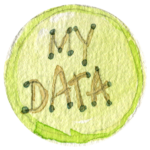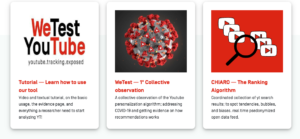4• 2 • Different interpretations of data justice •
 Design Justice: Other interpretations of justice have been foregrounded in ideas about the design process and the conditions within which data infrastructures are designed and created. Thus, there have been calls for more inclusive and participatory design practices that promote community involvement, based on bottom-up infrastructures that amplify rather than oppress marginalised communities. Design justice addresses structural inequalities from the design of technology perspective. It is also the title of a book written by Costanza-Chock, (2018), who is a trailblazer in this field. The design justice network was born from such ideas. It is an international community of people and organisations who are committed to rethinking design processes centring them on those who are marginalised by design. This work of design justices has been recognised as an important addition to already existing initiatives aimed at addressing data justice.
Design Justice: Other interpretations of justice have been foregrounded in ideas about the design process and the conditions within which data infrastructures are designed and created. Thus, there have been calls for more inclusive and participatory design practices that promote community involvement, based on bottom-up infrastructures that amplify rather than oppress marginalised communities. Design justice addresses structural inequalities from the design of technology perspective. It is also the title of a book written by Costanza-Chock, (2018), who is a trailblazer in this field. The design justice network was born from such ideas. It is an international community of people and organisations who are committed to rethinking design processes centring them on those who are marginalised by design. This work of design justices has been recognised as an important addition to already existing initiatives aimed at addressing data justice.

Data activism: Debates around data justice have also emerged at the intersection of activism and technology. In this intersection, data is considered as a means to challenge mainstream views and understandings about the world. Data activism is aimed at creating opportunities for “counter-imaginaries and social justice claims to emerge.” (Milan and Van der Velden, 2016). Data activism refers to the range of sociotechnical practices that interrogate the fundamental paradigm shift brought about by datafication. It should be seen as a continuum that includes affirmative engagement with data, called proactive data activism. It requires data-based advocacy, and tactics of resistance to massive data collection as well as reactive data activism, e.g. encryption practices as explained here. In an educational context, data activism, as conceptualised by Milan and Van der Velden (2016), can be understood as a form of critical pedagogy. The individual attempts to make sense of data as a way of knowing the world and turning it into a point of intervention and generation of data countercultures. This means that, potentially, engaging in data activist practices will allow the individual to be a proactive citizen who is able to counteract somewhat oppressive data practices and in so doing, is able to change history, as Freire (1978) suggests. Therefore, data activism can be used as a heuristic tool for exploring new forms of political participation and civic engagement in the age of datification. The research project Datactive, lead by Stefania Milan, University of Amsterdam, has a wealth of resources that can be useful for teaching and learning.
 Grassroot movement Grassroots groups and social justice campaigns have also started to apply a more comprehensive and critical approach to datafication and, in some cases, have done so within a ‘data justice’ framework. The Detroit Digital Justice Coalition has worked with local residents in identifying potential social harms that may emerge through the collection of citizen data by public institutions, situating these harms within the ongoing criminalisation and surveillance of low-income communities, people of colour and other targeted groups. Themes of data cooperativism are also becoming prevalent in the platform cooperativism movement. The aim of this movement is to build on the values of cooperativism to create a more just future of work in the digital gig economy. The movement relies on democratic decision-making and shared ownership of the platform by workers and users. Instead of optimising the digital economy for the few the movement seeks to do it for all people. A good example of platform cooperativism can be seen in the ‘Roadmap towards Technological Sovereignty’ outlined by the local administration in Barcelona. The aim is to develop and strengthen more citizen-centred data infrastructures in public governance structures. The project has developed a toolkit to develop ethical digital standards. Another great example of this interpretation of social justice is The Afrofeminist Data Futures. This movement focuses specifically on African feminist movements working towards social justice. It explores the collection, sharing and use of digital data for social transformation. They define data as distinct pieces of information, stored as values of quantitative and qualitative variables, which can be machine-readable, human-readable or both. The aim of the movement is to determine the extent of data use, the opportunities and the challenges of working with data, as well as present recommendations for social media companies to better contribute to the data ecosystems in the African context
Grassroot movement Grassroots groups and social justice campaigns have also started to apply a more comprehensive and critical approach to datafication and, in some cases, have done so within a ‘data justice’ framework. The Detroit Digital Justice Coalition has worked with local residents in identifying potential social harms that may emerge through the collection of citizen data by public institutions, situating these harms within the ongoing criminalisation and surveillance of low-income communities, people of colour and other targeted groups. Themes of data cooperativism are also becoming prevalent in the platform cooperativism movement. The aim of this movement is to build on the values of cooperativism to create a more just future of work in the digital gig economy. The movement relies on democratic decision-making and shared ownership of the platform by workers and users. Instead of optimising the digital economy for the few the movement seeks to do it for all people. A good example of platform cooperativism can be seen in the ‘Roadmap towards Technological Sovereignty’ outlined by the local administration in Barcelona. The aim is to develop and strengthen more citizen-centred data infrastructures in public governance structures. The project has developed a toolkit to develop ethical digital standards. Another great example of this interpretation of social justice is The Afrofeminist Data Futures. This movement focuses specifically on African feminist movements working towards social justice. It explores the collection, sharing and use of digital data for social transformation. They define data as distinct pieces of information, stored as values of quantitative and qualitative variables, which can be machine-readable, human-readable or both. The aim of the movement is to determine the extent of data use, the opportunities and the challenges of working with data, as well as present recommendations for social media companies to better contribute to the data ecosystems in the African context
Activity
A data-activism project

This activity is part of the project Datactive, as part of their outcomes they developed software to expose different things that happen with big platforms such as YouTube and Facebook, to name some.
Go to this website and follow the instructions to use the software with your students in a seminar to dissect and expose YouTube influence. This is an excellent exercise to understand the meaning of the filter bubble, an idea put forward by Eli Pariser (TedTalk)